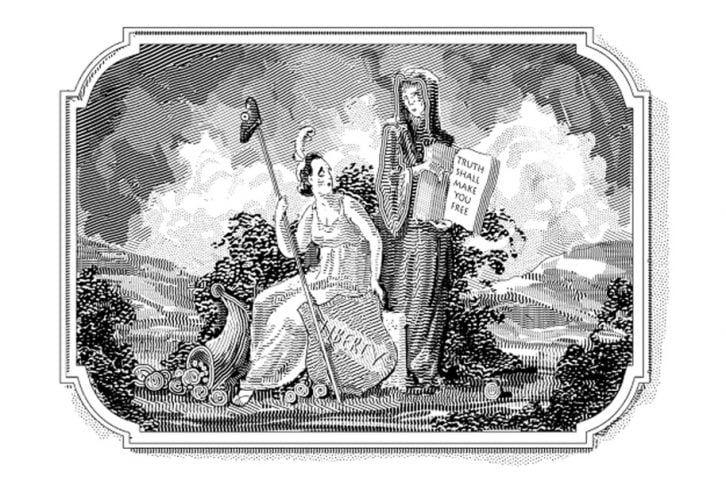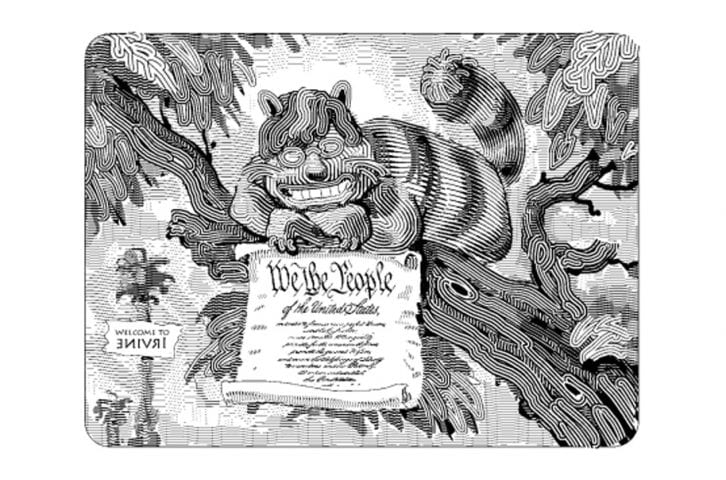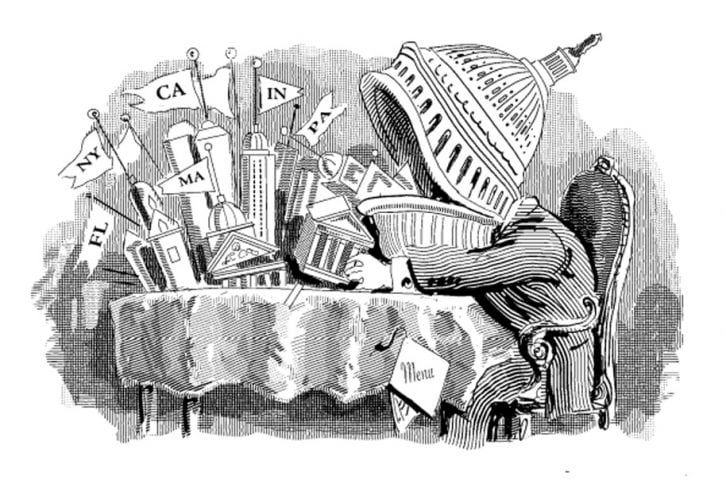Books Reviewed
A review of La Vita Nuova, by Dante Alighieri, Translated by David R. Slavitt
David Slavitt's new translation of Dante's La Vita Nuova is a painful example of an all-too-common failure of contemporary literary criticism—a failure of imagination. Seth Lerer, who writes what in many ways is a perfectly uncontroversial introduction to the translation, sets the tone in the very first paragraph where he informs us that La Vita Nuova is many things: a "story of desire," "an anthology of lyric poetry," and "a treatise on literary criticism." But "most compellingly," says Lerer, the dean of Arts and Humanities and distinguished professor of literature at the University of California, San Diego, La Vita Nuova "is the announcement of a literary career." There you have it, the pinnacle of what the contemporary literary critic can imagine. In Leisure: The Basis of Culture (1952), Josef Pieper argued that spiritual sloth, acedia, is the besetting sin of our times; as a result, we can no longer partake of those feasts that unite us with the divine, but instead define our worth according to secular work. So it is that the literary critic, incapable of imagining anything greater in life than to forge a prestigious career, now resolves the poetry of the past into what Stephen Greenblatt, living in a narcissistic age and therefore seeing narcissism everywhere, called "self-fashioning."
Lerer admits that the new poets of Dante's age—particularly his predecessor Guido Cavalcanti—had begun to incorporate into love poetry the language and the ideas of philosophy and theology. He knows that Dante has examined the nature of love, and he probably knows also that the great Scholastics, like Thomas Aquinas and Bonaventure, and such Church Fathers as Augustine, had written much, and penetratingly, on love and desire. It is just that he is not greatly interested in what they have to say. La Vita Nuova is a brilliant poetic pondering of love, inaugurating a centuries-long tradition of poets casting themselves as personae, to provide ironic and illuminating distance between what, for instance, a young man feels, and what the somewhat older man now sees, not through his own cleverness, but through his immersion in the truths provided for him by the great spiritual writers of the past—not to mention Scripture—and confirmed by his own experience. Of all that, Lerer says, myopically, that "the new poets of the thirteenth century made love a matter of the mind as much as of the heart," as if Christian writers had not been doing that for 13 centuries; then he shifts to what really interests him: "But they made love a matter of the city street as much as of the bedchamber."
First, the bedchamber. Dante does retire to his rooms to write poetry, but he gives us no sensual fantasies; the closest he comes is his dream of Beatrice, naked but wrapped in a crimson cloth and carried in the arms of Love. Otherwise we are given no description of Beatrice's body, and only the scantiest description of her face. Then the city street. Yes, Dante mentions that he meets Beatrice while walking down the street, or that he sees her in the company of other noble women, and he is, as Lerer says—or rather his persona is—preoccupied with what other people are saying about him. But he is careful not even to mention the name of the city where he lives, and he describes absolutely none of its topography. The contrast between La Vita Nuova and the Commedia, in this regard, could hardly be greater. But there we have it. Our contemporary critics know about sex and politics, or think they do, so they talk about sex and politics, even when the poets give them hardly anything to talk about.
To Lerer's failure of imagination, David Slavitt adds flippancy—that constricted distortion of humor that C.S. Lewis's Screwtape thought should be at all costs encouraged. It brings no joy. It is not clever; it assumes that the joke has already been made, or that something beyond one's own understanding is not worth taking seriously. It does not bring one heart into communion with another. It is easy, and it is destructive.
* * *
In his preface, Slavitt announces, with some defiance, that he is not thoroughly committed to the meaning of Dante's poetry. "Poems have meanings," he says, "but they are not merely meanings." True enough—poems are also objects of beauty, works of art. The translator's unenviable task is somehow to convey both the meaning and the peculiar beauty, both the matter and the form. Slavitt, himself a poet, scoffs at teachers who ask students to explicate poems, when the teachers themselves do not read poetry for pleasure. Again, fair enough. But then he writes: "Imagine sex ed. classes taught by nuns." The flippancy. As if Francis of Assisi, having renounced for his own use the good things of the material world, could not rejoice all the more in the beauty of creation; as if Pope John Paul II, a celibate man, could not write most powerfully about the holiness of the sexual giving of man and woman in marriage. The flippant comment reveals more than Slavitt knows. His is the lack of experience, his is the narrowness of imagination; he himself is his supposedly ignorant person, discoursing on subjects beyond his ken. The result is that we get from his translation neither the meaning of Dante's poetry, nor its beauty. As for the prose sections of La Vita Nuova, such is Slavitt's irrepressible desire to sniff and snigger, we cannot even rely upon faithfulness there, and indeed many words, phrases, sentences, and in one case an entire paragraph, are simply thrown away. We get Slavitt, flattening Dante to his own cramped dimensions.
For so severe a diagnosis, a few examples will have to suffice. Take the second prose section, which describes the boy Dante's first sight of Beatrice. It is a remarkable moment. Three faculties of Dante's being, roughly corresponding to the three aspects of the human soul as enumerated by Aristotle, react with wonder or with dismay. These, which Dante calls "spirits," speak in the sacral and hieratic language of Latin, rather than in the vernacular Italian that is the principal language of La Vita Nuova. The Latin echoes the poem's opening lines: "In the book of my memory, after the first pages, which are almost blank, there is a section headed ‘Incipit vita nova.' Beneath this heading I find the words which it is my intention to copy into this smaller book, or if not all, at least their meaning." The passage must be preserved in Latin, and Slavitt's principal predecessors, Barbara Reynolds (from whose translation the above lines are taken) and Mark Musa, recognize that. Slavitt's abandonment of the Latin is akin to his suppression of much of what Dante has to say about these spirits (such as their transcendence of the body) and his reduction of Dante's circumlocutory and exceedingly precise manner of speech. Let us compare the translations—first from Musa:
At that very moment, and I speak the truth, the vital spirit, the one that dwells in the most secret chamber of the heart, began to tremble so violently that even the most minute veins of my body were strangely affected; and trembling, it spoke these words: Ecce deus fortior me, qui veniens dominabitur michi. At that point the animal spirit, the one abiding in the high chamber to which all the senses bring their perceptions, was stricken with amazement and, speaking directly to the spirits of sight, said these words: Apparuit iam beatitudo vestra.
Reynolds' translation is quite similar, the most significant variation being her rendering, "the spirits of vision," which stresses perhaps a shade more than Musa's "sight" that what we are addressing here is intellectual as well as physical—the sense of vision, according to the ancients Christian and pagan, bringing us closest to the immateriality of the soul. Now Slavitt:
At that instant, I can truthfully say that my animal spirit in the deep chamber of my heart began to tremble, and my fluttering pulses declared: "Behold, a god stronger than I am is coming and will rule me." At the same moment, the vital spirit that resides in the lofty chambers of the skull to which all the nerves report spoke in its astonishment to my eyes, saying: "Now has your bliss appeared."
The Latin is gone, and the "high chamber" suddenly becomes the brute "skull," with the senses, which any thinker of the Middle Ages would distinguish from the nerves that the senses employ, reduced merely to nerves. The idea that the mind organizes all these sense perceptions—the idea of the sensus communis—is also gone. That mind, as our translator has it, speaks in astonishment not to what Dante calls "the spirits of sight" or "the spirits of vision," but merely to the "eyes," which Dante could easily have written, but which he did not in fact write. The result is theologically pallid. The vision of God is our beatitudo, our happiness, say the Scriptures and the Fathers, and Dante's beloved Thomas, and thus the phrase "apparuit iam beatitudo vestra" prepares us for the time, intimated at the conclusion of La Vita Nuova, when Dante will see his love of Beatrice as propaedeutic to his love of Christ. All that Slavitt's rendering means is that Dante's eyes will never see so beautiful a girl. That may be true, but it is very far from all that we can say.
* * *
Or take Dante's great canzone in La Vita Nuova, Donne ch' avete intelletto d'amore, which Musa describes as the first breakthrough that the young lover makes in turning from himself and his feelings towards the transcendent worth of Beatrice. The word intelletto is crucial. It echoes the Latin intellectus, which denotes a direct intuition, a seeing into the essences of things, such as the angels, themselves often called "intelligences," possess. Musa translates literally, leaving the portentous word intact: "Ladies who have intelligence of love." Reynolds attempts to render the meaning: "Ladies who know by insight what love is." Both translations have the additional merit of rendering a lapidary line in a lapidary way. Here is Slavitt, with a thump: "Ladies, you who can understand love, let me / speak to you of my lady." So the thumping, the reduction, the near-burlesque, continues, with Slavitt interjecting a parenthesis, "Love may be blind / but isn't deaf," which does not at all appear in the original.
In the next stanza the damage accumulates. Dante's first line repeats the key word from the previous opening line: Angelo clama in divino intelletto. There is, I believe, a Scriptural allusion here to the cry of the Baptist, which Dante will make explicit later in the work: Vox clamantis in deserto, "a voice crying in the wilderness." It is impossible, perhaps, to carry these hints across. What is not impossible is to write a noble line that captures the solemnity, I might say the liturgical solemnity, of the original. So Musa writes: "The mind of God receives an angel's prayer." Reynolds writes: "To the all-knowing Mind an angel prays." Now Slavitt, writing as if Dante were Ariosto, with that ever-present shade of burlesque, evident in the extra capitalization, and the bureaucratic word that ends the line: "An angel speaks to the Mind of God to report." Here is the stanza in full, in Slavitt's version:
An angel speaks to the Mind of God to report
that there is a marvel on earth both strange and rare
whose actions arise from a radiant soul down there,
the glow of which illuminates the sky
even to paradise's heights. In short,
our only lack in heaven is her fair
and splendid presence. All the saints declare
that the Lord must take some action to rectify
this defect promptly. Fortunately, I
can announce that Pity speaks to God as well:
His judgment is that the lady ought to dwell
on earth for a while longer: "It is my
will that he say to the souls in hell that this
was the vision he had of hope of heaven's bliss."
Thump, thump. The fine Italian verb risplende, rendered by Reynolds with the noun "splendor," becomes here a "glow," rising up to the "sky," which is not in the original, but which assists us in not taking the scene in heaven seriously. Then follows that undercutting "in short," reminding one of Dickens's Micawber. The snickers continue, evident in the bureaucratic memorandum of the saints. Meanwhile much of the original is lost: Diletti miei, God calls the saints, with its echo of the baptism of Christ; Musa renders it "chosen ones," and Reynolds, a shade more happily, "my loved ones." It is not there at all in Slavitt, and it is far from the only thing missing. Dante's final lines are mysterious, and at once deeply personal and theological. The poet, says God, will say in hell, "O mal nati, / io vidi la speranza de' beati." Neither Musa nor Reynolds can translate the vocative mal nati literally, though Reynolds does preserve the vocative; both deliver the meaning, and both deliver the powerful direct discourse. So Musa:
and who shall say unto the damned in Hell:
"I have beheld the hope of Heaven's blest."
So Reynolds:
And who will say in Hell: "Souls unconfessed!
I have beheld the hope of Heaven's blest."
There are people here—the blest. They vanish from Slavitt, just as Beatrice is reduced from the personified la speranza to the awkward and impersonal this.
* * *
A final instance. Dante has just said that his first poem in praise of Beatrice won him the man whom he considers his best friend, the poet Guido Cavalcanti. Slavitt's note informs us: "Within a decade, Dante played a part in the exile of Cavalcanti from Florence, and later, after his death, Dante puts him in The Inferno in the sixth circle, where heretics are punished." I am stunned that such a sentence could have gotten past the editors. Guido is not in Hell. His father is; and his father wonders why Dante is traveling to the underworld, rather than Guido. We learn, in that scene, that Guido is in fact still alive, and that, alas, he may have held "someone" in scorn—Beatrice, as I read it, and by implication, Christ. Indeed in Purgatory Dante is at pains to redeem the poetry of his friend, whose beloved Giovanna he has already, in La Vita Nuova, cast as the forerunner of Beatrice, as her namesake John was the forerunner of Christ. This note, then, is not an innocent mistake. It is also not entirely surprising.
It does grow wearisome, this tired old modern secularist assumption that things medieval have nothing to teach us—we moderns for whom "drab," as Lewis put it, is "a favorite color."




